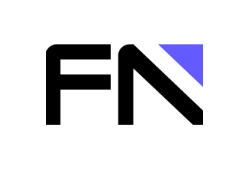Proprietary Trading vs. Hedge Funds: Key Differences
Both hedge funds and prop trading have surged in popularity in recent years. This is mainly due to the potential for high returns offered by both financial instruments through sophisticated trading strategies.
However, they often get confused due to their operation within the same markets. In reality, proprietary trading firms and hedge funds are more dissimilar than they are alike.
What Is Proprietary Trading?
Proprietary trading, commonly known as "prop trading," is a high-risk, high-reward activity where a bank or firm trades with its own capital to generate profits. Prop trading firms aim to make profits independently by trading stocks, derivatives, currencies, and other financial instruments.
This sets them apart from traditional financial institutions that prioritize client service.
Since proprietary trading firms use their own capital, the potential for both profits and losses is significant. As a result, they attract highly skilled and experienced traders to trade on their behalf.
These traders benefit from the firm's resources and technology, utilizing various trading strategies and leverage to generate substantial profits for both the company and themselves.
What Are Hedge Funds?
A hedge fund is a private investment fund that utilizes investor funds to generate profits for clients, while charging management and performance fees. Similar to prop traders, hedge fund managers employ complex trading strategies and can utilize derivatives or leverage to outperform average investment returns.
However, hedge funds trade with their clients' funds, leading them to implement risk management practices to protect those funds. Consequently, hedge funds are generally considered a lower risk trading activity.
Hedge funds are exclusively open to accredited investors who meet specific wealth requirements. In the United States, this entails having a net worth exceeding $1 million. Accredited investors also include institutions such as banks, brokerages, and insurance firms.
Key Differences
|
Hedge Fund |
Prop Trading |
|
|
Investment Model |
Hedge funds seek outside capital from wealthy, accredited investors and invest it into financial markets for absolute returns. |
Proprietary trading companies use their own capital to seek short-term gains in various financial markets. |
|
Regulation |
Hedge funds are much less regulated, with some regulatory oversight for those not qualifying for the private fund advisor exemption. |
Prop trading faces high regulation due to the Volcker rule, especially for traditional banks and financial institutions. |
|
Fees |
Hedge funds typically use a "two and twenty" fee structure, charging a 2% management fee and a 20% performance fee. |
Proprietary trading shares profits with traders, such as a 90:10 split in favor of the trader. |
|
Flexibility |
Hedge funds have much more flexible policies and investment strategies available. |
Firms have restrictions on trading strategies. |
|
Risk Exposure |
Hedge funds assume risk on behalf of accredited investors. |
Firms stake their own capital and assume personal risk. |
Similarities Between Them
The primary similarity is, naturally, the shared goal of generating profit. Additionally, both hedge funds and prop trading firms participate in active trading, employing experienced traders to operate in various financial markets.
Lastly, both employ similar trading strategies and actively practice risk management. This involves promoting diversification, utilizing risk limits, determining position sizes, and employing hedging techniques to safeguard capital.
Find a Trusted Proprietary Trading Firm
The 5%ers
Fortunly's Rating: Our editorial team determines the rating based on a set of evaluation criteria developed for each product and service category.

Primarily a forex platform, The 5%ers also supports cryptocurrencies, stocks, and precious metals. Traders can participate in challenges for enhanced account benefits. The company's latest High-Stakes initiative provides a $10,000 monthly salary for a minimal $39 entry fee.
- •Bonuses and salary
- •High maximum capital
- •Leverage of up to 1:100
FundedNext
Fortunly's Rating: Our editorial team determines the rating based on a set of evaluation criteria developed for each product and service category.

FundedNext boasts extremely low commissions and spreads, and has an ever-growing customer base, with more than $158 million in payouts to traders from 170 countries already funded by the company.
- •Dedicated Account Manager
- •15% profit split from the start
- •Low starting price
In Conclusion
As we can see, there are many notable differences between hedge funds and propietary trading firms. The key distinction lies in prop firms trading with their own capital, while hedge funds employ funds from affluent investors to generate profits for both clients and themselves.
I have always thought of myself as a writer, but I began my career as a data operator with a large fintech firm. This position proved invaluable for learning how banks and other financial institutions operate. Daily correspondence with banking experts gave me insight into the systems and policies that power the economy. When I got the chance to translate my experience into words, I gladly joined the smart, enthusiastic Fortunly team.





